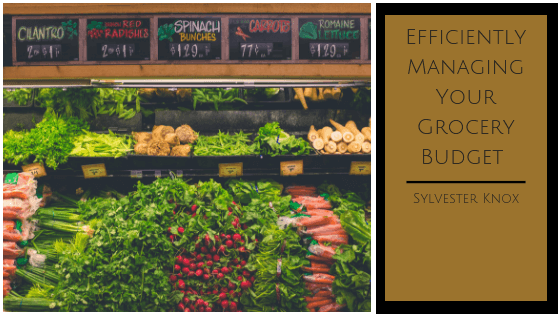Out of the many regular expenses that are deducted from your bank account, groceries is usually one that can make a pretty large dent. Whether you’re a single adult with a minimal grocery list, or a large family on a tight budget, planning a grocery trip to make it financially efficient is a smart way to cut down on your costs and reduce the possibility of overspending. Depending on your food shopping frequency, you can easily create a plan to manage how much you spend, whether its weekly, bi-weekly or on a month to month basis. Here are some simple tips for controlling a weekly food budget.
Look At the Supermarket Advertisement
Many supermarkets have online advertisements, and with careful planning, it is possible to shop for the best deals each week. When your supermarket of choice is offering items on sale, go through and see which ones you need for your household. If the sale is more than just a few cents off, say a buy one get one free, take advantage of it. If it’s a regular item in your home, you’ll most benefit from buying more than one. Make sure to buy foods that won’t spoil so that the budget isn’t wasted on rotten fruits or vegetables.
Store Rewards Programs
Find out if your supermarket has a “shoppers card” or rewards program. Patrons who hold shoppers card, or are rewards members are often able to obtain items on sale that are exclusive to cardholders. Rewards programs at your local supermarket are often free to sign up and provide you with discounts, points systems, and helpful coupons.
Have Weekly Menu Plans
Planning out your shopping trip is essential if you’re looking to stay within budget. Before you make your way to the store, take a look at the advertisements, and try to plan out things like breakfast, lunches, and dinners. Doing this can ultimately prevent impulse shopping, and keep you on track to buying only what you need.
Avoid Buying Unneeded Items
There’s a lot of psychology that goes into the designing of a supermarket, believe it or not. Where items are placed throughout the store is done with a strategy that is meant to appeal to customers and encourage them to buy; even if it’s something they may not need. This even applies to where certain items in the store are placed, like snack foods and candy. If you’re on a tight budget, many of these items may be unnecessary to your household; do your best to avoid unnecessary purchases by sticking to your weekly menu plan.
Look for Coupons to Save Money
Many of us are familiar with extreme couponing, and while it would be great to go to the store for essentially free after the use of coupons, it’s a very time-consuming process, and many stores have limits to what you can do with coupons. Without going to the extreme (unless you want to), take a look at weekly flyers, and your store’s website. You can usually find a decent amount of coupons for regular items that you might be purchasing; this may not get you a “free” grocery trip, but it could definitely bring your total down!

